Capcom's 30 greatest contributions to gaming history
Quirky quotes, exploding heads, gender bending, and more; Capcom’s done it all in the past three decades
30 Years of Awesome
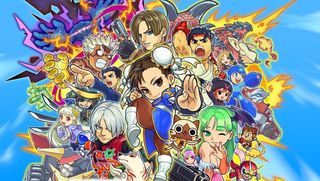
Over the past 30 years, Capcom has created some of the greatest games, franchises, and characters in video games, but they've also done so much more. Often times it's the little things that stick with us - an insane line of dialogue, a brilliant control decision, a whimsical design choice, an exceptionally catchy piece of music - and give birth to something thats awesome, epic, hilarious, or maybe all of the above.
Capcom was basically creating gaming memes before the rest of the world even knew what the term meant, resulting in a grab-bag of gaming goodness that over the last three decades has become a permanent part of the interactive entertainment landscape. From colorful boxer shorts to the business end of an index finger, here are Capcom's 30 greatest contributions to gaming from the past 30 years.
Quarter-circle forward + punch
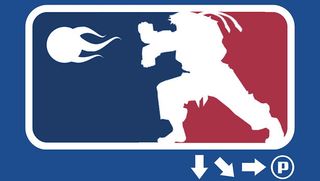
Once upon a time, game actions pretty much consisted of basic things like moving, jumping, and attacking. Pretty simple, eh? Capcom changed all that with a little game called Street Fighter II and its joystick-and-button combinations for special moves. SFII wasn't the first game to do such a thing (obviously; it is a sequel, after all), but it was the game that suddenly made it common for you to roll the joystick down, down-right, right - aka a quarter-circle forward - and hit a button to see a projectile erupt from your character's hands and shoot across the screen. It wasnt long before every arcade game and its brother was using the same control scheme, and now practically everyone knows exactly what you mean when you say fireball motion or quarter-circle forward.
Mega Man 2's soundtrack
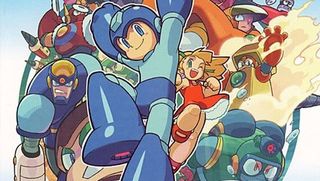
Is there any catchier 8-bit soundtrack out there than that of Mega Man 2? (Hint: The answer is no.) From the rocking title screen track (which has basically established itself as the unofficial Mega Man theme song) to the incomparably upbeat theme to Dr. Wily's castle, Mega Man 2 is full of amazing tunes that makes it is a favorite of remix artists everywhere. Despite the limitations of the NES, Capcom's programmers were able to pump out surprisingly rich, complex, multilayered music, such as the electronically infused theme to Quick Mans stage and the epically funky Crash Man tune. It's fair to say that Mega Man 2's music was as big a part of establishing the games personality as the Robot Masters and level designs themselves. More importantly, nearly 25 years later, the music still sounds fantastic.
Chun-Li's thighs
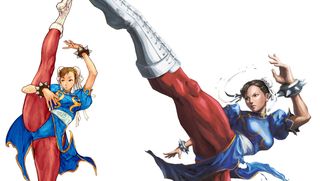
Ever since she burst onto the scene in Street Fighter II, claiming to be the strongest woman in the world, Chun-Li has worked wonders with her mighty legs. Not only was she able to rapidly devastate opponents with her Lightning Leg technique, but she was actually able to flip herself upside down and fly through the air by using her legs like propeller blades. Now those are some pretty amazing gams! They got even more impressive throughout the years - perhaps most notably in Street Fighter III: 3rd Strike - as her muscular thighs grew to tree-trunk-like proportions and practically took on a life of their own. Does Chun-Li have the best legs in gaming? Maybe... but we wouldn't tell her that unless we wanted her to kick our teeth down our throats.
Jill sandwich
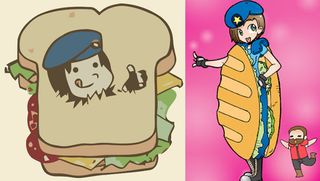
Were not gonna say that Capcom can do no wrong, but even when things go awry, it's often in spectacular fashion. Naturally, were referring to the original Resident Evil, which - in addition to establishing the survival-horror genre, providing tons of jump-from-your-seat thrills, and spawning a plethora of imitators - has earned a place in history for its epically bad voice acting. It's especially hard to ignore the scene in which burly bearded badass Barry Burton saves his partner Jill Valentine from a falling ceiling and proceeds to calmly tell her that, "You were almost a Jill sandwich!" to which she laughingly replies, "You're right!" Barry also gets props for his Oscar-worthy delivery of "I hope this is not Chris blood!"
This story is happy end! [NOTE: Typos below are intentional]
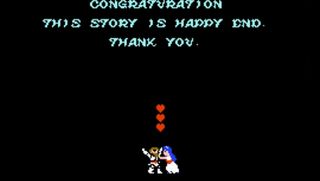
Look up the definition of infuriating and you just might see a picture of Capcom's Ghosts'n Goblins for NES. As if simply being hard as nails wasnt bad enough, once you think you've reached the end, the game sends you all the way back to the beginning with the message, "This room is an illusion and a trap devisut by Satan. Go ahead dauntlessly! Make rapid progress!" Should you somehow manage to play through the game a second time without smashing your controller into a million pieces and get the true ending, you'll be treated to a hilariously bad translation that says, "Congraturation. This story is happy end. Thank you. Being the wise and courageour knight that you are you feel strongth welling in your body. Return to starting point. Challenge again!" Wait, after all that you still want us to do it AGAIN? Brutal.
Sign up to the GamesRadar+ Newsletter
Weekly digests, tales from the communities you love, and more
The Legend of Capcom
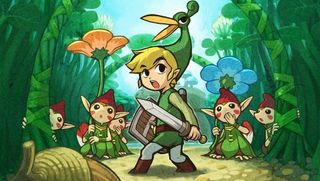
The Legend of Zelda is one of Nintendo's most beloved properties, but Capcom has actually made a fairly significant contribution to the franchise's success: believe it or not, Capcom was responsible for the development of The Legend of Zelda: Oracle of Ages and The Legend of Zelda: Oracle of Seasons on the Game Boy Color, as well as The Legend of Zelda: The Minish Cap and at least part of the remake of The Legend of Zelda: A Link to the Past on Game Boy Advance. Clearly, it says a lot about Nintendo's faith in Capcom that they'd be trusted with such a significant franchise. And it's not like these games ended up being the black sheep of the series, either; they rank among the best handheld Zelda games out there.
Quality licensed games
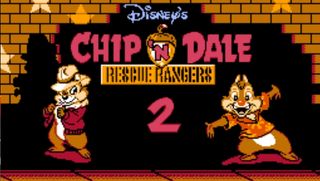
Games based on licenses have a bad reputation, and for a good reason - most of them are crap. But Capcom managed to defy the odds and make numerous licensed titles that were actually - gasp! - good! During the 8- and 16-bit days, Capcom's Disney titles, such as DuckTales, Chip n Dale Rescue Rangers, Aladdin, and The Magical Quest Starring Mickey Mouse were nothing short of fantastic, and that attention to quality extended into the arcade with gems like Dungeons & Dragons: Shadow Over Mystara, Aliens vs. Predator, and X-Men: Children of the Atom. The trend even continues today with titles like DuckTales Remastered and Ultimate Marvel vs. Capcom 3, proving that licensed games can be so much more than a quick cash-in when the publisher wants them to be.
Objection!
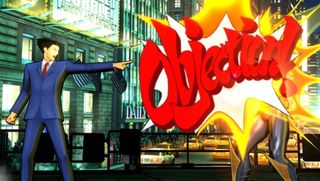
Who ever thought that a game about being a being a lawyer and pointing with your index finger could be a success? Apparently Capcom and Ace Attorney creator Shu Takumi did, as they brought unlikely hero Phoenix Wright to life in a lighthearted courtroom-drama series. Though there are many reasons to like the Ace Attorney games - including a memorable cast of unique characters, engaging mysteries that will keep you guessing, and back-and-forth courtroom battles where the innocent are exonerated and the guilty are exposed- it is perhaps the sheer satisfaction of finding a lie, presenting a piece of contradictory evidence, and hearing Phoenix yell "Objection!" that keeps players coming back more than anything else. And, of course, it's arguably even more fun when you yell "Objection!" into the DS's microphone yourself.
Saved by the wolf
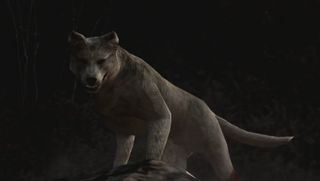
Resident Evil 4 - often considered the best installment of Capcom's survival-horror franchise - is jam-packed with awesome moments and heart-pounding thrills (chainsaw guy, anyone?), but one of the best occurs during Leon S. Kennedy's boss fight against an ogre-like El Gigante. Early in the game you have an opportunity to free a white wolf caught in a bear trap; if you do so, it escapes to freedom, but much later makes a dramatic, howling return during your battle against the enormous, seemingly unstoppable foe. Despite the apparently impossible odds, the wolf leaps into the fray to distract El Gigante, allowing the tough encounter to become considerably more manageable. It's a cheer-worthy payoff, and just one example of how RE4's attention to detail can take an already epic encounter and make it feel even more triumphant.
Chris is the former senior editor of Nintendo Power and the former editor at Mac|Life. He's now a freelance writer, and a huge fan of RPGs, Mega Man, The Legend of Zelda, Ace Attorney, and Japanese gaming in general.
First Dragon Ball: Sparking Zero DLC adds 11 characters from Akira Toriyama's final film, Dragon Ball Super: Super Hero, including 4 Gohans and 4 Piccolos

After packing Super Smash Bros. Ultimate with content, Masahiro Sakurai unsurprisingly says that working out a game's volume from the start is important